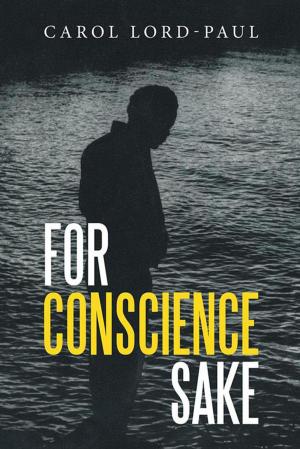| Author: | Amy Johnson | ISBN: | 9781504991469 |
| Publisher: | AuthorHouse UK | Publication: | July 8, 2016 |
| Imprint: | AuthorHouse UK | Language: | English |
| Author: | Amy Johnson |
| ISBN: | 9781504991469 |
| Publisher: | AuthorHouse UK |
| Publication: | July 8, 2016 |
| Imprint: | AuthorHouse UK |
| Language: | English |
A thousand corpses lie on the ocean bed in a sunken ship and some precious cargo. This is a story of the emotional involvement of a few men to salvage the cargo and, if possible, the ship. The operations are conducted with care. The whole ceremony is utterly unreal, when one of its members is hauled back to Israel and the others try to resurrect the ship with its cargo intact. The Middle East war has a serious impact on one young family, and a quick mental calculation proves that this is no random search for a few lost images and artifacts. Damascus Protocol is thus inspired by the research into Palmyra and the destruction of antiquities in Arabia. Since the early 1970s, the region of Arabia has been one of the most promising new areas of research in antiquities and Arabic archaeology. Until now, there has never been an urgent need to synthesize the archaeological history of this region from the beginnings of Arabic settlements and the rise of Moslem faith. Volumes already exist of the Pleistocene era to the Achaean period; there is published evidence for prehistory and history of the Arabic region, especially Syria and surrounding regions. The destruction of various ancient sites due to the conflict in the region since, Iraq was an inspiration for this book. Research was conducted on literary evidence from Greek, Roman, Syriac, and Arab sources with an overview of the relevant Syrian archaeological evidence. This aspect of the global conflict is contained in the book Damascus Protocol.
A thousand corpses lie on the ocean bed in a sunken ship and some precious cargo. This is a story of the emotional involvement of a few men to salvage the cargo and, if possible, the ship. The operations are conducted with care. The whole ceremony is utterly unreal, when one of its members is hauled back to Israel and the others try to resurrect the ship with its cargo intact. The Middle East war has a serious impact on one young family, and a quick mental calculation proves that this is no random search for a few lost images and artifacts. Damascus Protocol is thus inspired by the research into Palmyra and the destruction of antiquities in Arabia. Since the early 1970s, the region of Arabia has been one of the most promising new areas of research in antiquities and Arabic archaeology. Until now, there has never been an urgent need to synthesize the archaeological history of this region from the beginnings of Arabic settlements and the rise of Moslem faith. Volumes already exist of the Pleistocene era to the Achaean period; there is published evidence for prehistory and history of the Arabic region, especially Syria and surrounding regions. The destruction of various ancient sites due to the conflict in the region since, Iraq was an inspiration for this book. Research was conducted on literary evidence from Greek, Roman, Syriac, and Arab sources with an overview of the relevant Syrian archaeological evidence. This aspect of the global conflict is contained in the book Damascus Protocol.















